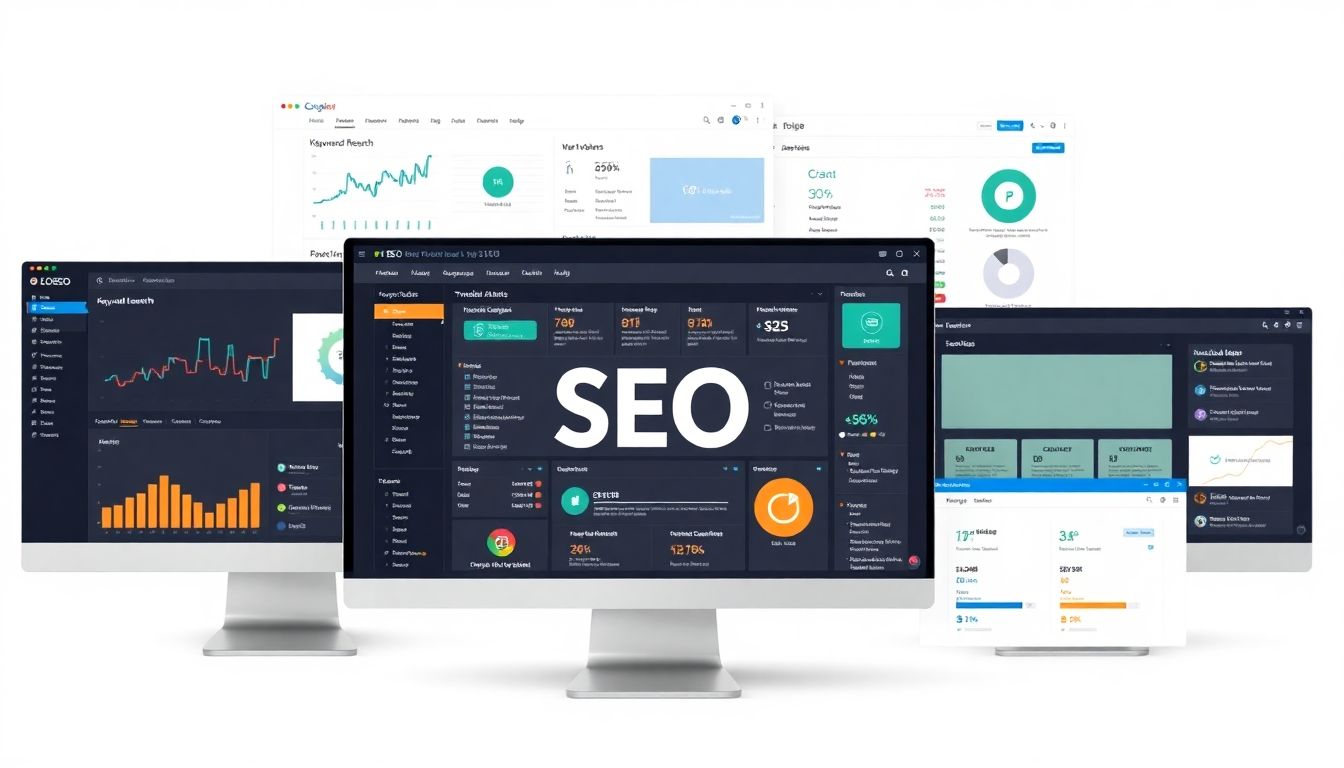
Supercharge Your Website: The Ultimate Guide to SEO Tools
Why do SEO tools matter? In the crowded online world, getting noticed is tough. With more than 2.3 billion websites out there, how do you ensure yours stands out? SEO tools hold the key. They help you climb search engine rankings, attract visitors, and boost conversions.
The High Stakes of Online Visibility
Did you know that over 90% of online experiences begin with a search engine? It's true! Websites on the first page of Google get 70% of the clicks. This means that if you aim to increase website traffic and conversions, focusing on SEO is essential.
The Power of Data-Driven SEO
SEO tools provide valuable insights into your website’s performance. They allow you to analyze what works and what doesn't, leading to more informed decisions. With data in hand, you can optimize content, target the right keywords, and improve user experience.
Choosing the Right Tools
Not all SEO tools are created equal. Consider your goals, budget, and the specific needs of your website. Whether you're a small business or a larger enterprise, there's a tool for you. Make a plan to evaluate options carefully.
Keyword Research Tools: Unearthing Your Website's Goldmine
Finding the right keywords is like discovering treasure. Here are some popular tools for keyword research:
Top Keyword Research Tools
- SEMrush: Provides extensive keyword data, competition analysis, and keyword difficulty scores.
- Ahrefs: Known for its vast database, it helps identify valuable keywords and backlink opportunities.
- Moz Keyword Explorer: Great for finding keyword suggestions and understanding SERP (Search Engine Result Pages) features.
Beyond Keywords
It’s not just about the keywords. Understand the search intent behind them. Are people looking for information, to make a purchase, or something else? Recognizing this helps customize your content.
Actionable Tip
Focus on long-tail keywords. These phrases are less competitive and can bring in targeted traffic. For instance, instead of targeting "shoes," try "best running shoes for flat feet."
On-Page Optimization Tools: Mastering Your Website's Foundation
On-page optimization is crucial for SEO success. Here are some focus areas:
Analyzing On-Page Factors
Use tools like Yoast SEO or Screaming Frog to analyze essential elements such as:
- Title tags
- Meta descriptions
- Header tags
- Content structure
Content Optimization
Tools like Grammarly and Hemingway help ensure readability and clear communication. They can check keyword density and content quality.
Actionable Tip
If you're optimizing a blog post, use an on-page SEO tool to evaluate everything from readability scores to keyword usage. Make changes based on the suggestions provided.
Off-Page Optimization Tools: Building Authority and Trust
Gaining credibility online requires work beyond your site. Here’s how:
Backlink Analysis
Tools like Ahrefs and SEMrush help you monitor your backlinks. They can identify your best links and potential sites to target for link-building opportunities.
Social Media Monitoring
Keep track of brand mentions using tools like Hootsuite or Mention. Understanding social signals can improve your overall online reputation.
Actionable Tip
Create a strategy for link building. Use tools to find relevant websites in your niche and reach out for guest post opportunities or partnerships.
Technical SEO Tools: Ensuring a Seamless User Experience
Technical SEO is all about the behind-the-scenes work. Here are key aspects:
Website Crawling and Indexing
Tools like Google Search Console are vital for identifying crawl errors, indexing issues, and overall site health.
Site Speed Optimization
Use tools like GTmetrix or Google PageSpeed Insights to check your page load speeds and find ways to improve.
Actionable Tip
Regularly check Google Search Console for insights. Fix any crawl errors to keep search engines happy.
SEO Reporting and Analytics Tools: Tracking Progress and ROI
Measuring success is crucial. Here’s how to keep tabs on your SEO efforts:
Google Analytics
This tool tracks website traffic, user behavior, and conversion rates. Understanding these metrics is essential for strategic adjustments.
Google Search Console
Use this tool to monitor performance in search results. You can see which queries bring in traffic and find areas for improvement.
Actionable Tip
Set up custom dashboards in Google Analytics. This allows you to track key metrics like organic traffic and bounce rates at a glance.
Conclusion: Elevating Your Website with the Right SEO Tools
Key Takeaways
SEO tools are vital for optimizing your website's performance. From keyword research to technical SEO, each tool plays a role in driving traffic and improving user experience.
The Future of SEO Tools
As technology advances, expect more AI-driven tools and automation. Staying updated with trends will keep your SEO strategies ahead of the curve.
By understanding and using the right SEO tools, you can supercharge your website and achieve remarkable results.







